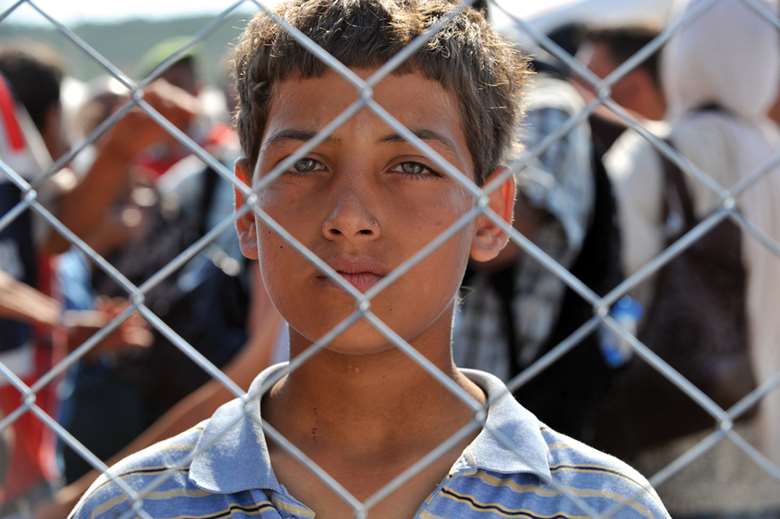Legal Update: Caring for refugee children
Kamena Dorling
Monday, September 28, 2015
Kamena Dorling, policy and programmes manager at Coram Children's Legal Centre, examines the UK government's response to the refugee crisis and foster care provision for refugee children.

Since the heart-breaking photo of Syrian Alan Kurdi's body on a beach in Turkey was seen around the world, the UK public has reacted to the refugee crisis with great compassion and generosity, calling for refugees to be welcomed to this country. In response, the government has finally pledged to recognise the country's moral responsibility and accept 20,000 more Syrian refugees over the next five years through the existing Syrian Vulnerable Persons Relocation scheme.
While this is a welcome and positive step, it now remains to be seen how local authorities will be supported to accommodate the increased numbers of refugees. There are already great pressures on local authorities as a result of the refugee crisis. Kent, for example, has seen a significant rise in the number of unaccompanied children (those without family to care for them) arriving at Dover, with more than 600 arriving in May to July this year. This includes Syrian children, but also those from conflict-ridden states such as Afghanistan and Eritrea. Unaccompanied children in the highest intake areas in the UK face various problems, including minimal chance of foster care for those arriving at 16 or 17; long waits to get into education; lack of access to legal advice; and limited support from social workers with high caseloads.
It is vital that children coming to the UK, through resettlement or otherwise, receive the support and protection they desperately need. This will only be possible if local authorities are supported to provide care for this group, both financially and practically. On a daily basis, Coram Children's Legal Centre (CCLC) sees social workers and others struggling to work with young refugees and migrants due to confusion about their needs and rights. The government will need to commit sufficient financial resources for them to provide appropriate care. In addition, other services, such as assistance with access to education, mental health provision and foster care, will also need to be available, especially given the likelihood of areas with traditionally very few or no refugees taking in much larger numbers.
Homes for Good
One positive recent development has been the huge number of people showing interest in providing homes for Syrians and fostering children. Homes for Good has registered 10,000 individuals keen to foster child refugees. It is hoped that this enthusiasm can be converted into a real increase in the number of registered foster carers which could go far in improving the options for all unaccompanied refugee children, not just Syrians. That said, many may not realise that the existing system requires them to go through the same lengthy and detailed process as anyone else wishing to become an approved UK foster carer. This can take up to eight months to complete. The Department for Education has rejected calls to speed up the process in order for homes to be more quickly found for refugee children as it is crucial to ensure that foster carers are adequately assessed and trained.
The role of foster carers
Many refugee children in the UK will have undergone significant trauma and/or bereavement, suffering emotional or mental health problems as a result. They may speak little or no English, feel extremely isolated and may struggle, especially in the first few months or the year after arrival, to access a school or college place, appropriate healthcare and to feel any degree of safety and security. Foster carers can play a key role in facilitating unaccompanied children's access to services such as education and healthcare, and to support them through the immigration process. They can also provide emotional support and assistance in accessing therapeutic support where needed. Consistent care and support can help promote young people's resilience and capacity to cope in the context of forced migration. While several studies have found that unaccompanied minors have high levels of post-traumatic stress symptoms, this is lower for young people living with family and for unaccompanied young people living in foster care compared to those living in group homes or independently.
Support for foster carers
It should be noted that while foster care is often described positively by separated children as a form of accommodation where they felt a sense of belonging and inclusion, research has shown that others in foster care have felt uncared for, isolated and that they were treated differently. There are issues for fostering teams and social workers to consider in terms of matching, preparation, planning and how to foster a sense of belonging.
In light of the range of experiences and difficulties facing refugee children, there is an important role for foster carers in providing much needed support for them, both as individual children alone in an unfamiliar country, and in terms of navigating the complex education, legal and other systems. But it is not a role that should be entered into without the appropriate support and preparation.
CCLC is developing information events and training courses for prospective foster carers and can also provide free advice on working with this group. Contact the Migrant Children's Project on mcp@coramclc.org.uk for more information.




